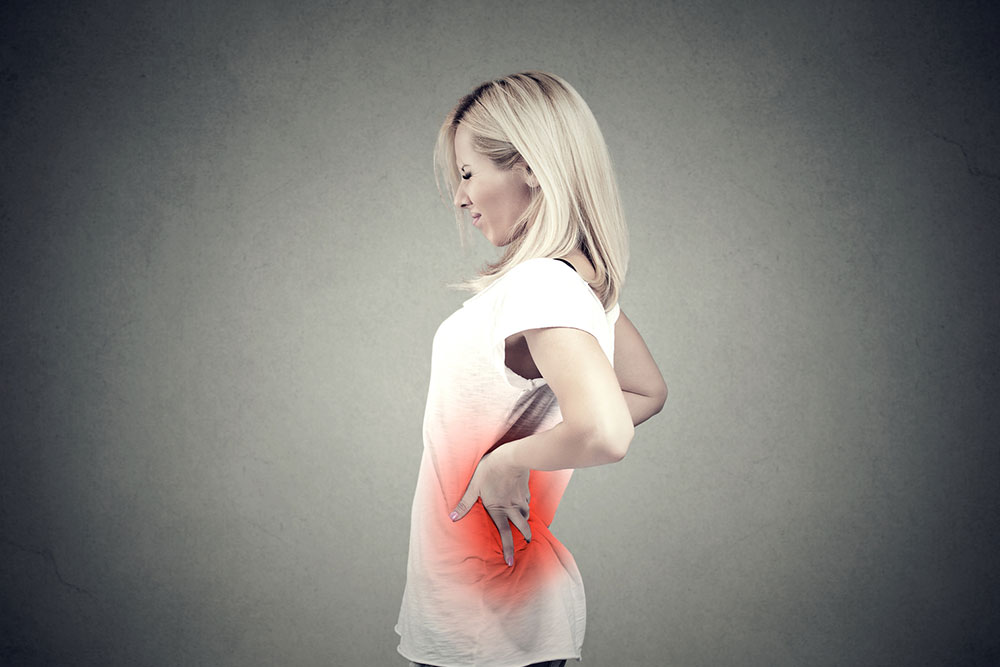Relation Between the Kidneys and Lower Back Pain
Pain in the lower back area could be the result of numerous factors. But is your lower back pain kidney related? Pain caused in the lower back may be due to kidney infection or kidney stones. Very often, when you have lower back pain, you may be confused about the exact cause.

Difference between normal lower back pain and kidney-related lower back pain
When the lower back pain is kidney related, it usually shows incidence in the form of specific, localized pain. A normal back pain, on the other hand, may tend to affect the areas from your neck to your back. If you experience a sudden, shooting pain in the lower part of your rib cage or on the lower sides on your back, it is pain induced by kidneys. Kidney pain may lead to pains in lower abdomen and inner thighs, whereas in the case of normal back pain, the pain may spread further to your hips, thighs, calves, or feet.
Kidney-related lower back pain causes
The most common causes behind lower back pain are kidney stones or kidney infection. Other causes behind the lower back pain include renal infarction, kidney cancer, glomerulonephritis.
Kidney stones can be responsible for inducing pain in your lower back. When there is a movement of the stone in your left kidney, you tend to experience lower left back pain. Kidney stones may form as a result of crystallization of minerals because of the concentration of urine in your kidneys. Dehydration, digestive diseases such as inflammatory bowel disease and a history of kidney stone problems in the family are some of the factors that put you at risk of developing kidney stones. The stones in your kidney may also enter your urinary system. The urine passes from the ureters to the urinary bladder, which is then excreted through the urethra. When the stones move from your kidneys into the ureters, the tubes connecting the urinary bladder and the kidney, you experience sharp lower back pain.
Another common cause behind lower back pain, kidney induced, is a kidney infection. Kidney infection is an infection that generally starts in your urinary bladder or the urethra. It may then affect your kidneys as well. Women are at a higher risk of developing kidney disease than men. If you have a weak immune system, you are likely to be at risk of having kidney disease. Any condition that results in the blockage of the urinary tract also can lead to kidney infection. One of the main causes to which lower back pain can be attributed is a kidney infection. Kidney infection leads to pain accompanied by inflammation in your kidneys. Pain is usually concentrated below the spin and above the hip. Lower back pain may be triggered by movement or due to pressure.
Diagnosing the cause behind lower back pain
For accurately determining the cause behind the pain in your lower back, a few diagnostic tests can be conducted. The most common causes behind lower back pain are kidney stones and kidney infection.
The diagnosis of kidney stones usually involves blood tests as well as urine tests. Imaging tests may also be conducted to detect stones in your kidneys. These may involve CT scans, X rays, and ultrasound, all of which determine the presence of stones in your kidneys.
For the diagnosis of a kidney infection, your doctor may ask you to get a urine test to check for the presence of pus, bacteria or blood in your urine. Blood tests may also be conducted to check for the presence of bacteria or other organisms in your blood.
Other symptoms accompanying lower back kidney pain
Lower back pain related to kidneys tends to be localized with a particular point at which the pain may be concentrated. The pain may spread to your inner thighs and lower abdominal area. You may experience pain in on one or both the sides of your lower back. In case of a kidney infection, you may suffer from symptoms such as nausea, vomiting, fever, the presence of blood in urine and fatigue.
Lower back pain induced by stones in your kidney may lead to the incidence of certain other symptoms such as severe pain and difficulty when urinating. Other than that, you may also find the presence of blood in your urine in this case.
Treatment and pain management techniques
Lower back pain induced by kidney infection can be managed by taking antibiotic medications prescribed by your doctor. For lower back pain caused by kidney stones, minimally invasive surgery or laser surgery may be recommended. To get instant relief, you can place heat pads on the area where the pain is concentrated. You can also take over the counter painkillers. It is very important to stay hydrated to avoid any further complications.











